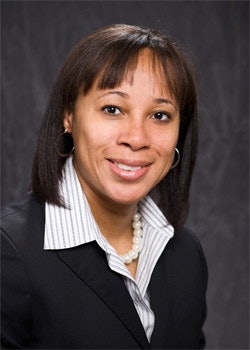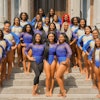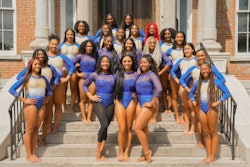Please describe what your responsibilities are as the Faculty Athletic Representative (FAR) at University of Toledo as a faculty member.
At The University of Toledo, the president appoints the FAR. The NCAA Constitution (Article 6.1.3) requires that all member institutions employ a FAR. This individual must have faculty rank and not hold either an administrative or coaching position in the athletics department. The FAR plays a central role in the overall checks and balances system designed to ensure academic integrity, sound governance and commitment to rules compliance, attention to equity and student-athlete welfare.
My faculty role at UT is in the accounting department of the College of Business and Innovation. I have been at UT since 2018. Prior to that, I was on the faculty at Louisiana State University for nine years.

What is your favorite thing about being the Faculty Athletic Representative?
I love watching and attending sporting events so serving as a FAR allows me the opportunity to be further engaged with both students and sports. I became the University of Toledo FAR on July 1st of 2020. With COVID-19, this year has been very different compared to previous years. I’ve enjoyed working with the athletics department while getting up to speed in my new role. I have also enjoyed having the opportunity to introduce myself to all of the student athletes, so they know who I am, how to reach me and that I am available if they have any questions or concerns related to academics.
How do you juggle your role on the faculty with your responsibilities in athletics?
I attend regular monthly meetings, but my responsibilities seem to be in spurts at the beginning of each season, as well as [when] any concerns related to academics arise. I also meet regularly with the other FARs and members of the Mid-American Conference (MAC) [to] address any issues or new initiatives for student athletes. The MAC also holds conferences (virtual this fall) and webinars to inform and educate new FARs to assist them in getting acclimated expeditiously. To help during this COVID-19 crisis, they have also developed webinars that focus on mental health and social injustice issues.
Did you play a sport(s) in high school, college or professionally?
I did gymnastics until middle school. But then made the shift to extracurricular activities like yearbook and AFROTC. However, I have always been a big fan of basketball. I’m 5’2” so playing on a competitive level was not really in the cards for me (smile). Since then, my oldest son has gotten me into soccer, which he plays competitively, and football. But basketball is still my favorite sport to watch. I’ve been watching since the days of Dr. J and then Iverson playing for the Philadelphia Sixers. My home state is Pennsylvania.
What do you think about student athletes using their status to promote social issues on and off campus?
Anyone has a right to free speech; however, we must realize our words may have negative consequences if others don’t support our view(s). An example would be Muhammad Ali who used his platform to speak against things (like social injustice and the Vietnam War) that he didn’t agree with. It cost him in the short run, but in the end, most would say he prevailed. However, he was willing to stand [on] his conviction and endure any consequences from the government, fans or just people in general opposing his views.
What would you recommend to a colleague who is trying to bridge the gap between faculty and student athletes?
Before I became a FAR, I think the foremost item for faculty to understand is that student athletes (SA) typically want to be both a student and an athlete. For many SAs, college sports are a way for them to finance their college education. In my experience at UT and three flagship universities, I have found most athletes are hard working at both. They are not here to do one or the other. Also, faculty should keep in mind that SAs typically don’t have a lot of control over their practice & game schedules. I think it is important to work with SAs so that they can be successful in school, while not giving SAs a pass. It is important for faculty to have the same work expectations from SAs as they have from any other student. We only short-change them if we don’t expect the same.
This article originally appeared in the January 21, 2021 edition of Diverse. You can find it here.



















